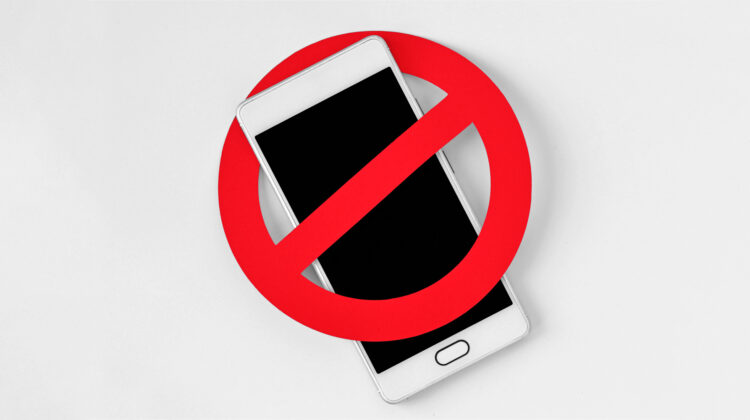Senate Assistant Majority Leader Joan B. Lovely (D-Salem) announces the Massachusetts Senate passed legislation to create cell phone-free schools across the Commonwealth.
By requiring school districts to prohibit student cell phone use during the school day, the bill aims to boost focus, improve mental health, and foster healthier learning environments.
S.2561, “An Act to promote student learning and mental health,” requires all public school districts to adopt cell phone-free school policies by fall 2026. Reasonable exceptions to the rule will be made for students who need their personal devices for treating medical conditions, off-campus travel requirements, individualized education plans (IEP) or to accommodate a disability.
Districts must ensure that students and caregivers have at least one method of communication during school hours and that students and families can communicate during emergency situations.
“Technology has changed rapidly, including new classroom technologies that have enhanced our students’ learning, but the basic tenets of learning in classrooms remain the same — focus, engagement, and curiosity,” said Lovely.
“Cell phone usage among students in classrooms, however, is strongly detrimental, from creating distractions to the potential for cheating and cyberbullying,” she continued. “With the passage of this bill, we are further ensuring that students, teachers, and other school staff are able to create an optimal environment for learning.”
Senate President Karen E. Spilka (D-Ashland) added that “a device small enough to fit in a pocket presents a profound challenge to ensuring student success.
“That’s why I charged the Senate in May of this year to explore ways to make our schools cell phone free. This legislation delivers on that commitment and builds on the Senate’s mission of creating a statewide education system that continues to promote learning and growth. I am deeply grateful to Chair Lewis and Chair Rodrigues for their leadership on this bill, and each of the Senators who have contributed to addressing this challenge.”
Sen. Jason Lewis, Senate chair of the Joint Committee on Education, spoke on the “myriad of negative effects” linked to student cell phone usage, including “diminished academic performance, poorer mental health, worse relationship building and social skills, reduced safety during emergencies, and more.”
To guide districts in crafting these policies, the Department of Elementary and Secondary Education (DESE) will create model guidelines within 180 days of the enactment of the law. Districts will have the freedom to decide what works best for them, whether they decide on using pouches, lockers or other storage options for electronic devices. Districts will also have the ability to adjust rules based on grade levels or the structures of their school days.
According to Pew Research Center, surveys have shown 72% of high school teachers report that cellphone distractions are a major problem in the classroom. The survey also reports 68% of U.S. adults are in support of banning personal electronic use in the classroom, demonstrating the strong public approval of this bill. Research from KKF demonstrates a rising number of states implementing classroom cellphone bans to address youth mental health issues and eliminate academic distractions.
Approximately 80 school districts have already reported, through a DESE pilot grant, that they have implemented student cell phone use policies, with even more districts likely putting similar measures in place outside of the grant program. Additionally, numerous states have enacted statewide bans or restrictions on cellphone use in schools, with another seven states having issued policies aimed at limiting student electronic use.
Each district will be required to notify families of their policy each year by Sept. 1, beginning in 2026, and submit annual updates of their district’s current policy with DESE. DESE will then provide an initial report of implementation to the Legislature at the end of 2027.
Having passed the Senate, the bill now goes to the House of Representatives for consideration.

